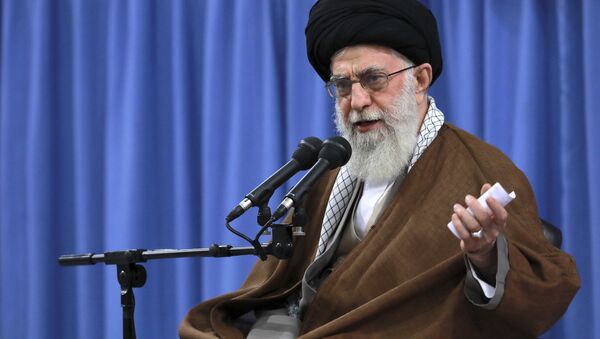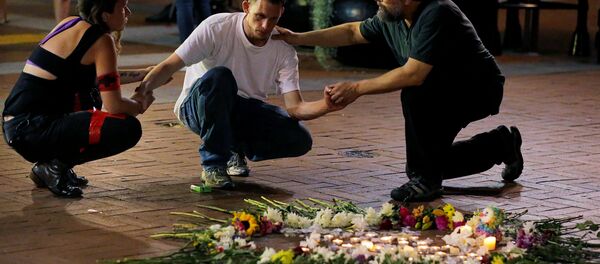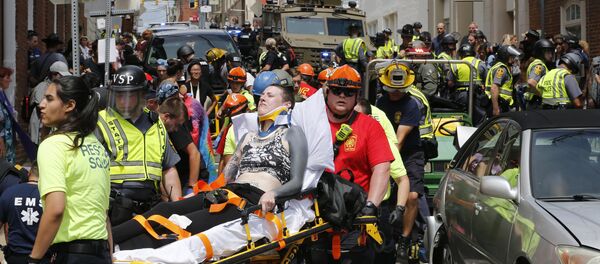The recent violence in Charlottesville, Virginia, proves that "if [the] US has any power, they better manage their country” and “tackle #WhiteSupremacy,” Khamenei said in a tweet on Wednesday.
Trump’s response to the weekend’s violence on the campus of the University of Virginia following a white nationalist rally has been to dig himself into a hole and keep digging. After responding with a limp statement disavowing violence and calling for united that many viewed as not sufficiently shaming to the neo-Nazism and the Klu Klux Klan in Charlottesville, Trump doubled down on Tuesday with an "off the rails" press conference, as Fox News described it.
— Khamenei.ir (@khamenei_ir) August 16, 2017
Speaking from Trump Tower in Manhattan, the president deflected blame from the bigoted groups and said "troublemakers" from the so-called "alt-left" were culpable for some of the violence that took place—even though it was a pro-white supremacy terrorist who killed 32-year-old Heather Heyer by driving a car into a crowd on Saturday.
— Max Abrahms (@MaxAbrahms) August 16, 2017
The same kind of terrorist tactics were used in Berlin at a Christmas market last December in an attack that killed 12 people. A truck was also used to murder 84 people in Nice, France, in 2016 when a terrorist targeted crowds watching fireworks in celebration of Bastille Day.
According to terrorism and international security expert Max Abrahms, assistant professor at Northeastern University in Boston, though there isn’t a universally recognized definition of terrorism, from an academic viewpoint, "there’s no question whatsoever that the violence in Charlottesville was terrorism."
"People generally use the word instrumentally, in order to legitimize actors they don’t like, or they’ll withhold use of the term in order to legitimize actors they do like. In authoritarian countries, for example, leaders will label all dissidents as ‘terrorists’ whether or not they use violence," Abrahms said on Tuesday in a Northeastern Q&A panel called "The Language of Violence."
“Academics, however, tend to agree on who is a terrorist and who is not based on this criterion: A terrorist is a non-state actor who uses violence against a civilian target for some kind of political goal,” the researcher explained, noting that in this sense the Charlottesville white nationalist rally that erupted in violence was undoubtedly an act of terror.
But as Khamenei points out, the US is quick to find problems that need solving around the world without always addressing the issues brewing within American borders — even though the threats are just as real.
"In general, Americans, when they think of terrorism, think of international terrorism instead of domestic terrorism," Abrams says, which is "a little peculiar because the vast majority of terrorism in the world has historically been domestic." The expert called the Klu Klux Klan a “huge domestic terrorism problem."
On Wednesday, Trump disbanded his Manufacturing Jobs Initiative after CEOs began resigning from the White House advisory group left and right. Alliance for American Manufacturing President Scott Paul stated succinctly, "it’s the right thing for me to do," in explaining his exit.
Former KKK Grand Wizard David Duke, however, has showered Trump with praise in recent days for how the president has responded to last weekend’s events.




